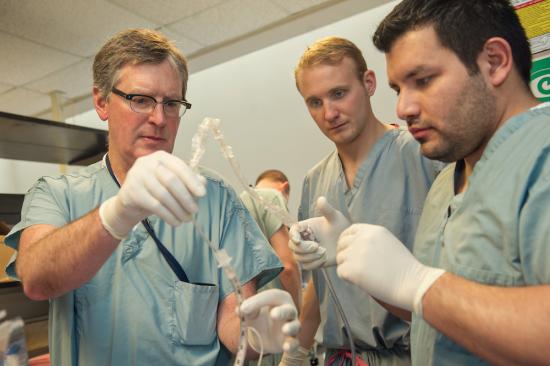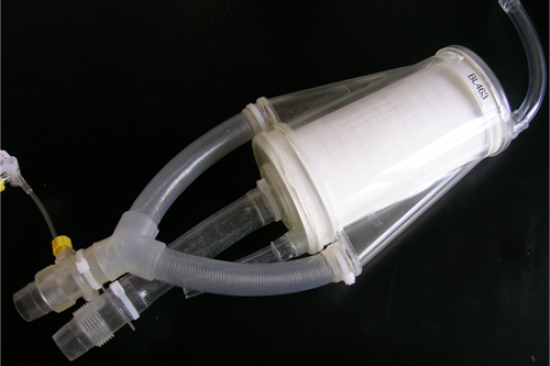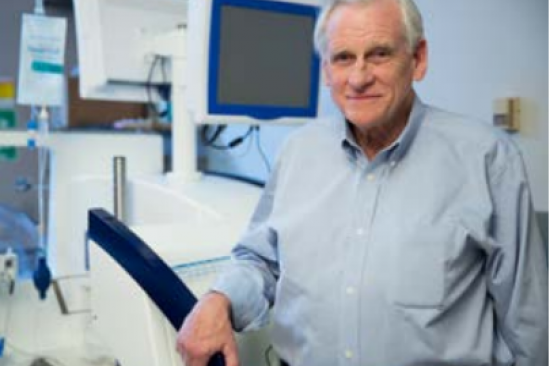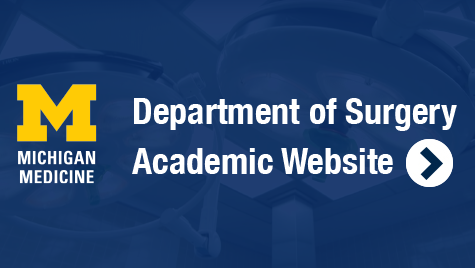The Extracorporeal Life Support Laboratory investigates novel physiological applications of core and related extracorporeal life support and bio-artificial organ technologies developed by
Laboratory Director and Professor Emeritus Robert Bartlett, MD. We have modified extracorporeal membrane oxygenation (ECMO) systems for a number of clinical scenarios, from multiple types of acute organ failure and extreme prematurity to organ resuscitation, perfusion and culture to expand the much-needed supply of donor organs.
The ECLS Research Laboratory is a highly collaborative and multidisciplinary consortium of many principal investigators – currently 14. In addition to conducting research related to life support, each also maintains a busy clinical practice in surgical specialties that include cardiac, thoracic, pediatric, orthopedic, transplant and trauma. Other specialties represented include emergency medicine and
nephrology, as well as biomedical engineering and chemistry. All lab investigators share a common motivation and mission: to better understand and to apply ECLS core technology to an important clinical problem. We conduct basic science, translational and pre-clinical and clinical research — from concept to bench to bedside and back again.
Current Research Projects:
- Extracorporeal Circulation Without Anticoagulation: The goal of this project is to develop and evaluate non-thrombogenic surface coatings.
- Dr. Bartlett (Principal Investigator), Dr. Meyerhoff (Co-Investigator)
- Resuscitating Organs for Transplantation (DCD): The goal of this project is to develop methodologies for resuscitation and transplantation of organs from donors that have experienced uncontrolled cardiac death.
- Dr. Rojas, Dr. Punch, Dr. Bartlett (Co-Investigators)
- Organ Perfusion and Culture: This project explores the idea of culturing and maintaining transplanted organs after an extended period of time away from the donor, therefore increasing the number of potential transplant recipients.
- Dr. Rojas (Principal Investigator), Dr. Bartlett, Dr. Punch, Dr. Haft, Dr. Owens, Dr. Lynch, Dr. Ozer (Co-Investigators)
- Development of an Artificial Placenta: This project explores the development of a respiratory support device for premature infants with respiratory failure using arteriovenous extracorporeal life support (AV-ECLS).
- Dr. Mychaliska (Principal Investigator), Dr. Hirschl, Dr. Bartlett, Dr. Rojas (Co-Investigators)
- Development of an Implantable Pediatric Artificial Lung: The goal of the proposed research is to develop implantable artificial lung technology for children that can serve as a bridge to recovery or transplantation.
- Dr. Hirschl (Principal Investigator), Dr. Bartlett, Dr. Rojas, Dr. Potkay (Co-Investigator)





